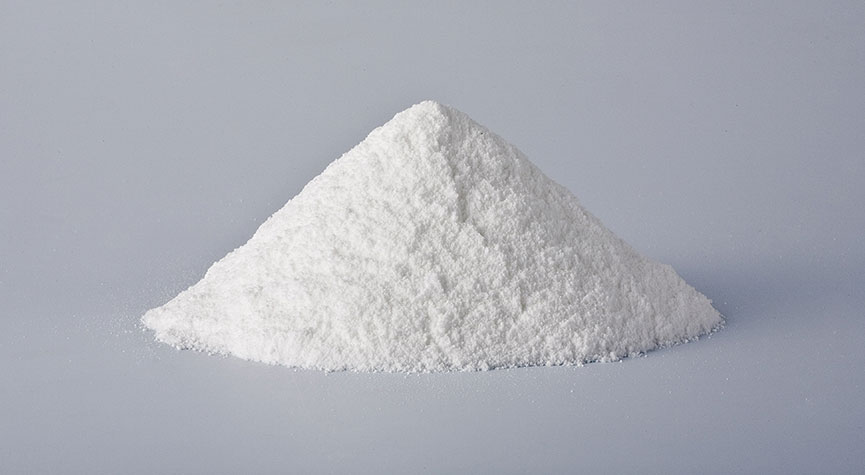Next up in the series is beta-alanine. While beta-alanine may not have as much research on it as our previous entry, caffeine, it is still a well-researched and established ingredient in the world of sports nutrition. You’d be hard-pressed to find a pre-workout product that doesn’t include it, and for good reason!
Beta-alanine most known for its ability to enhance endurance and delay muscular fatigue. This is exactly what we want from our pre-workout product. So, let’s dive in and find out if beta-alanine is worth adding to your regimen!
What is Beta-Alanine?
Beta-alanine is a non-essential amino acid commonly found in poultry, beef, and pork. Unlike other amino acids, it is not used to repair and build muscle proteins. Rather, it combines with another amino acid, histidine, to form a compound called carnosine.
How Beta-Alanine Works
When consumed in sufficient amounts, beta-alanine increases the amount of carnosine in muscles. This can be significant for performance because carnosine buffers the acidity produced during high-intensity exercise. Thereby delaying the onset of muscle fatigue and subsequent failure. In other words, you know that burning sensation you get in your muscles when nearing the end of a high-rep set, or trying to sprint over and over with incomplete rest? Carnosine lets you go longer before that feeling sets in and causes you to stop or slow down. This can allow you to do things like get more reps or sustain a faster pace for a longer period of time. Theoretically, you’ll see better results from training because you can do more high-quality work.
What Can You Expect from Beta-alanine?
Since this article series is focused specifically on pre-workout ingredients, we’re going to look at what beta-alanine can do for you acutely. Meaning, 30-60 minutes before training when most people take their pre-workout product. The research on beta-alanine’s efficacy when used pre-training is not only sparse but very limited in its applicability.
Study #1
In one study (Todorovic et al., 2022), taking 3.2g before completing four, 400m runs was able to prevent a decrease in performance for a countermovement jump test performed before and after the runs. So, the supplemented group’s performance didn’t get worse after running the 400s, whereas the control group’s did. However, this study was extremely underpowered as it only included 12 total participants with 6 in each group.
Study #2
Another study (Glenn et al., 2015) looked at cycling performance during three, all-out 30s bike sprints (i.e. Wingates) with 2 minutes of rest between sprints. Twelve female cyclists completed the trial twice; once with 1.6g of beta-alanine and once without. However, it was still a blinded study, meaning the participants didn’t know which trial they were given beta-alanine. At the end of the study, the only difference between the supplemented and non-supplemented trials was that the supplemented trial showed a decrease in perceived effort by the participants. In other words, they thought the sprints completed with beta-alanine felt easier. However, there were no differences in any performance outcome, such as max power output. So not only was this a small study, but there were no tangible benefits to performance.
Nearly all the beta-alanine research has examined chronic supplementation, usually a minimum of 4 weeks. This is because it takes approximately 4 weeks of consistent supplementation for muscle carnosine levels to increase enough to benefit performance. Remember, carnosine is the beneficial compound, not beta-alanine. Muscle carnosine levels will not increase 30-60 minutes after taking a few grams of beta-alanine. It takes time, approximately 4 weeks, for carnosine levels to build up. So, it’s unlikely that beta-alanine will have any significant impact on performance if you only take it in your pre-workout supplement.
Review of Multiple Studies on Beta-Alanine
With that said, beta-alanine does seem to improve performance if you take enough of it for a sufficient length of time and do the right kind of activities. According to a 2019 review, beta-alanine can meaningfully improve muscular endurance and time to exhaustion of high-intensity activities lasting between 30 seconds and 5 minutes. The intensity and length of time are crucial here! If you don’t do something hard or long enough, you won’t produce that burning sensation in your muscles and beta-alanine will not help you. So, if you are doing low reps, taking long rests between sets, or doing low-intensity cardio, you will likely not benefit. However, if you’re doing high-intensity training like CrossFit, longer sprints in track like 400s and 800s (or even the mile), or playing a team sport like soccer and basketball where efforts can be both sustained and high-intensity, then you might benefit from beta-alanine.
How and What to Take
As mentioned earlier, you need to take beta-alanine consistently for 4 weeks to start seeing performance benefits. The general recommendation is to take 4-6g per day split into multiple doses of 1-2g. The specific timing of each dose isn’t critical, just want to space it evenly throughout the day. After the 4 weeks, you may be able to slightly decrease the dose. But you’ll need to keep taking it to maintain elevated carnosine levels. There doesn’t seem to be any need to cycle on/off and it won’t suppress your natural production of carnosine.
When looking at beta-alanine products, you’ll want to see on the label that they’re using CarnoSyn® as that is the patented version.
Potential Side Effects
Beta-alanine supplementation’s only known side effect is paresthesia, a tingling sensation on the skin. This is harmless and can be minimized by using a sustained-release formula or by splitting the dose into smaller doses spread throughout the day. At the time of this writing, there are no other known side effects of beta-alanine.
Final Notes
Beta-alanine is what I would consider a “situational supplement”. You need to be doing the right type of training or activity to reap the benefits. Several populations are unlikely to see much benefit from it, especially pure strength and power athletes like powerlifters, Olympic weightlifters, throwers, and sprinters. The same could be said for pure endurance athletes like marathon or triathlon competitors.
For bodybuilders, strongman athletes, or strength and power team sport athletes, it would depend on the type of training. If you are going through high-volume or conditioning phases that rely on muscular endurance and create a lot of muscular fatigue, you may benefit. However, the 4-week loading phase should be completed before that type of training begins in order to reap the benefits of supplementation.
If you determine that beta-alanine would be beneficial for your training, it’s best to treat the dose in your pre-workout product as one of your doses throughout the day. You still need to take enough beta-alanine at other times of the day to reach the 4-6g threshold (just beta-alanine, not extra servings of your pre-workout). However, if the only dose of beta-alanine you get is the 1-2g in your pre-workout product, it likely isn’t doing you any good. So, when deciding if beta-alanine is worth adding to your regimen, make sure you consider your sport, training style, overall supplementation regimen, and goals!
Looking for a Supplement Geared Towards Muscle Recovery? Try myHMB!
MyHMB (scientifically known as beta-hydroxy beta-methylbutyrate or HMB) is a metabolite of the amino acid leucine. MyHMB aid in increasing muscle protein by acting on both sides of the metabolic pathways or protein balance. It stimulates muscle protein synthesis while decreasing muscle protein breakdown. This allows you to increase strength and power, blunt muscle damage, and improve recovery after intense training. Learn more >
















